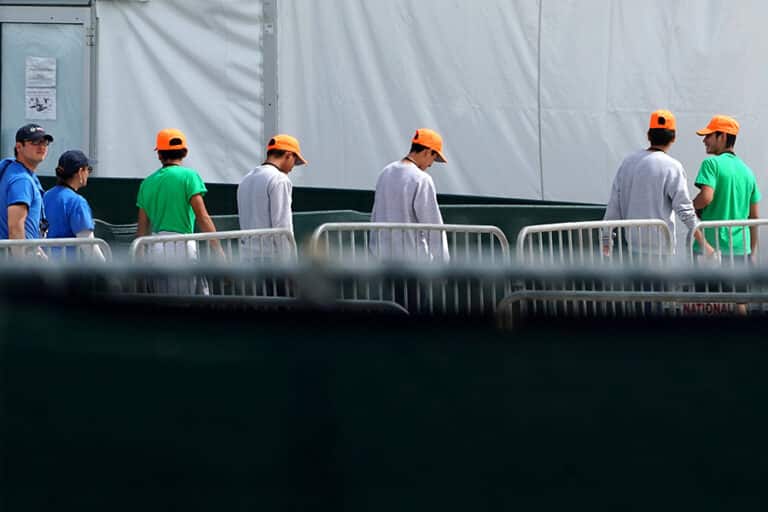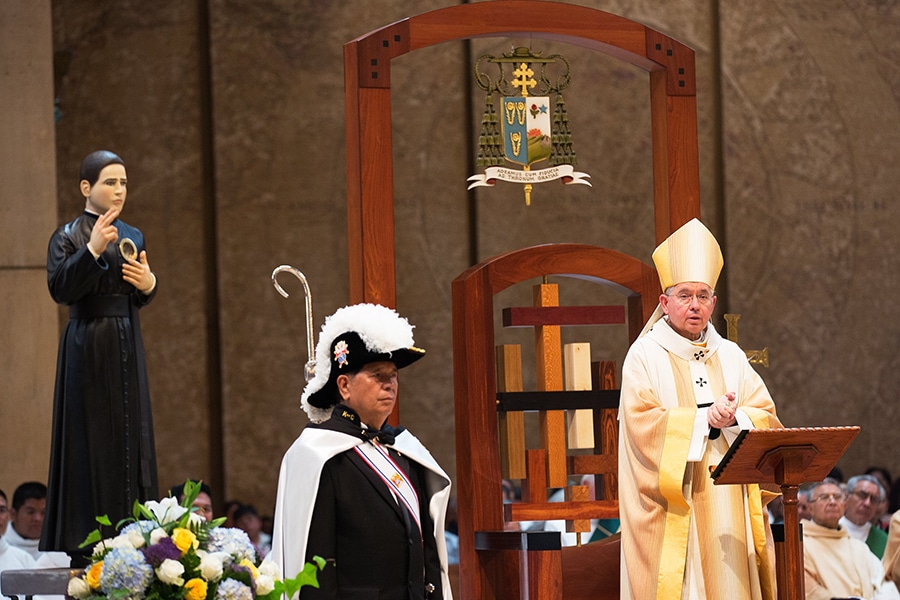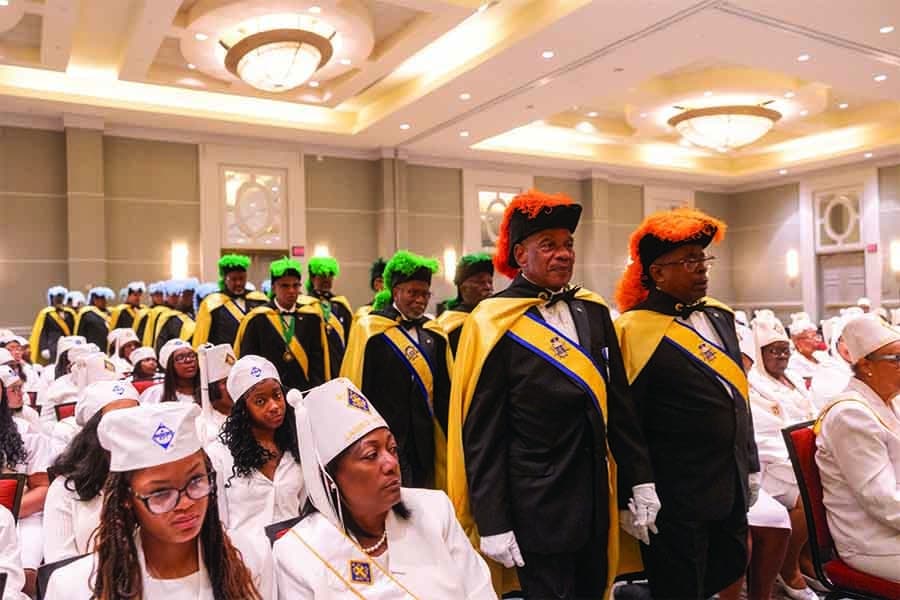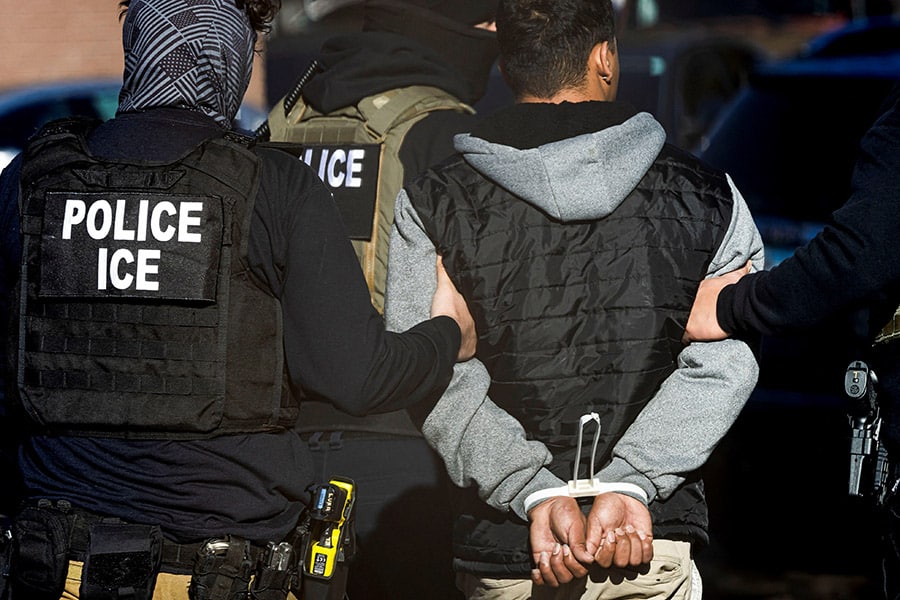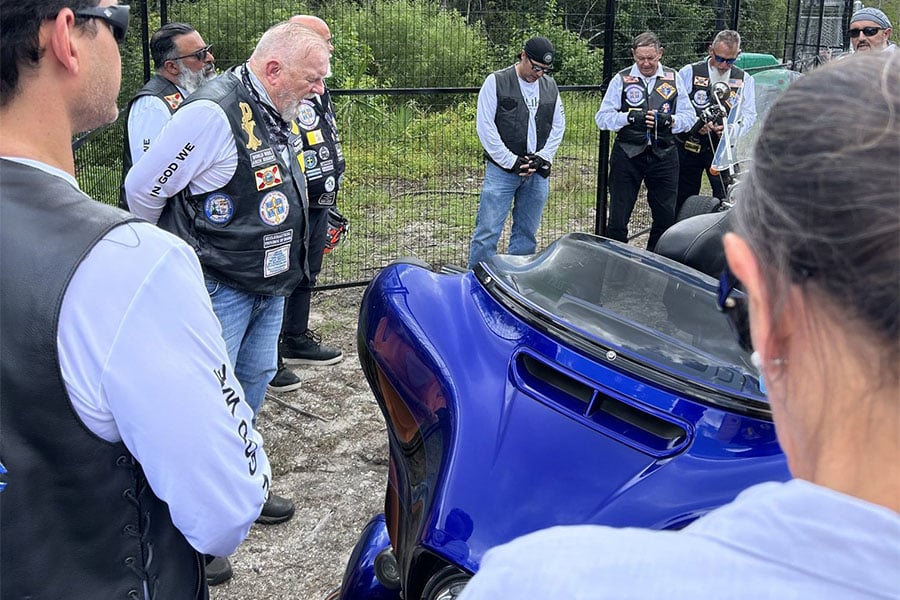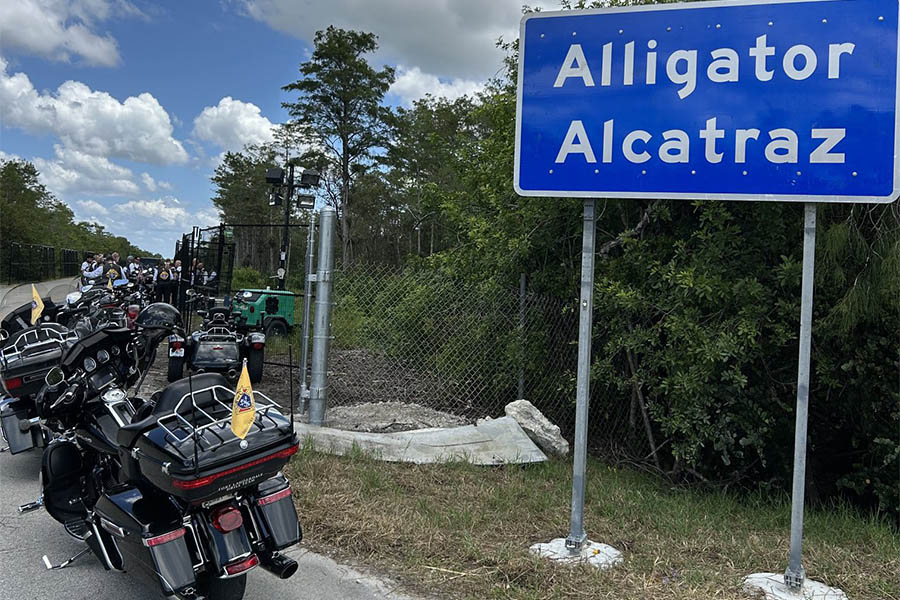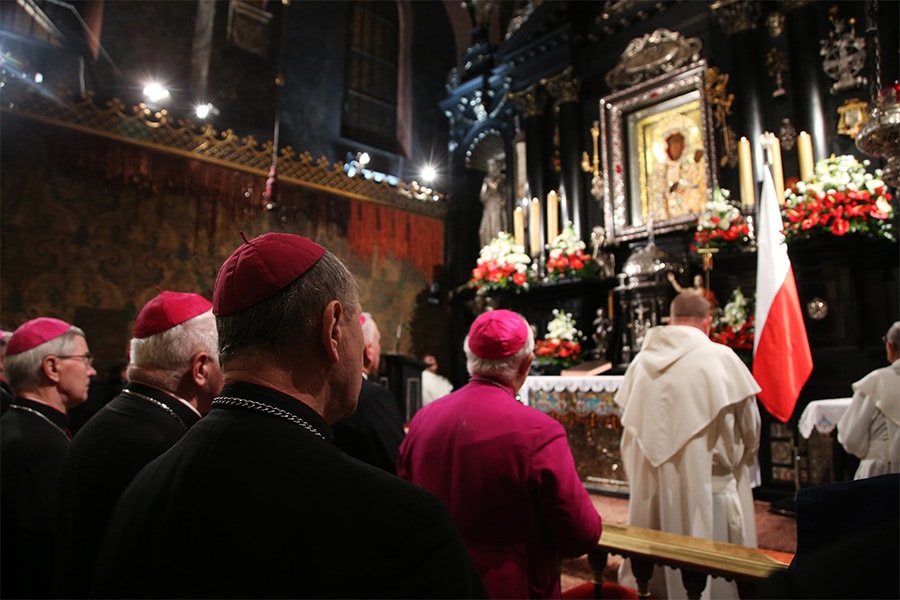A new report alleges that three Florida immigration detention sites deny timely medical care, potentially resulting in deaths, and have freezing and overcrowded cells with no bedding or hygiene access.
The sites are also accused of carrying out degrading treatment, including beatings, shackling and isolation, with detainees being forced to eat with their hands cuffed behind their backs.
The allegations about inhumane conditions at these sites — which hold people U.S. Immigration and Customs Enforcement says lack legal authorization to live and work in the U.S. — are contained in a report released by Americans for Immigrant Justice, Human Rights Watch and Sanctuary of the South.
They are deeply disturbing to Catholics concerned with the fundamental human dignity of immigrants, prompting Miami’s Archbishop Thomas G. Wenski to call on Congress to address how immigrants are being treated and urge Catholics to contact their congressional representatives to do something.
“These are not isolated incidents, but rather the result of a fundamentally broken detention system that is rife with serious abuses,” states the 92-page report, “You Feel Like Your Life Is Over: Abusive Practices at Three Florida Immigration Detention Centers Since January 2025.” It was released July 21.
The Florida facilities profiled include Krome North Service Processing Center, or Krome, in Miami; Broward Transitional Center, or BTC, in Pompano Beach; and the Federal Detention Center in Miami, called FDC.
Researchers with the three organizations that released the report — AI Justice, a nonprofit law firm; HRW, an international nongovernmental organization; and SOS, a workers’ collaborative network — interviewed current and former immigrant detainees, family members and immigration lawyers, and analyzed ICE data and other official documents.
At the recommendation of ICE’s public affairs office, OSV News contacted the office of Florida Gov. Ron DeSantis, as well as the Florida Department of Emergency Management for reaction to the report, but neither responded to requests for comment.
“This is not the first time that these concerns have been aired,” said Archbishop Wenski, a vocal critic of reported conditions at another controversial Florida migrant detention center, dubbed “Alligator Alcatraz” and located in Ochopee in the Everglades.
He and 25 Knights of Columbus recently rode their motorcycles to the gates of Alligator Alcatraz to pray a rosary, and he is still seeking pastoral access to it.
Asked by OSV News how everyday Catholics should respond to such reports, Archbishop Wenski said they “should be reminded that the immense majority of people that are here in an unauthorized status are not criminals. They’re not rapists, they’re not murderers, they’re not thieves, they’re not drug dealers, etc.”
“Those bad actors, nobody has a complaint that they’re being removed from the streets; nobody wants dangerous people on our streets,” he said. “But the immense majority of immigrants in this country are honest, hard-working people.”
Archbishop Wenski had an invitation for those who might doubt this.
“You can ask the farmers; you can ask the hotel managers, you can ask those that run nursing homes and health care institutions around the country, and they’ll tell you that their best workers, in many cases, are immigrants. Those are the people that we should advocate for — that there should be a path for them to stay in this country — because they’ve already contributed some sweat equity,” he said.
“They’re contributing to the country,” he continued. “Our country needs their labor, so they should be allowed to stay, and that’s what we should advocate for. I think there’s a lot of people that are open to that argument.”
Archbishop Wenski also urged legislative action. “Congress should do something — and Catholics should encourage their congresspeople to intervene, and to provide something more than just an enforcement-only approach to the challenges of immigration,” he said.
The report makes numerous recommendations, including shifting “toward humane, rights-based alternatives to detention,” such as community-based case management programs where possible, directing ICE to use immigration detention “only as a measure of last resort,” and protecting access to “essential services and spaces.”
Dylan Corbett, founding executive director of the Hope Border Institute in El Paso, Texas, echoed Archbishop Wenski’s call for humane treatment for detained immigrants.
“In general in the United States, systematic mistreatment of individuals is endemic to the immigration system. We’ve seen widespread violations of human rights in immigrant detention here at the border, and throughout the country,” he said. “Unfortunately, it’s part and parcel of a strategy of deterrence. And so it’s unsurprising that we’ve seen these new revelations from Human Rights Watch — but it’s troubling.”
Corbett expressed both legal and social concerns.
“The lack of due process, the lack of access to attorneys — we’ve even seen at the Alligator Alcatraz facility the detention of a minor, the disappearance of individuals into a black hole of the system — this is becoming the new normal,” he said. “And you cannot enact a campaign of mass deportations without this human cost. This is, unfortunately, a feature, not a bug — and it’s only going to get worse now, with the passage of the recent Big Beautiful Bill. Now the government has unprecedented resources to build additional facilities.”
Corbett suggested Americans are at an inflection point.
“Polling now is bearing out that many Americans have significant reservations about this — that this is a moment of moral conscience for our country, as we see the on-the-ground effects of what mass deportations look like,” he said.
“There’s an opportunity for us to reflect deeply on how this is inconsistent with our values as Americans,” he continued. “And I think faith communities and faith leaders who have been speaking out more and more have a role in helping us to understand the moral dimensions of this crisis.”
Anna Marie Gallagher, executive director of Catholic Legal Immigration Network Inc., best known as CLINIC, also asserted immigration reform is overdue.
“The details of this report are deeply disturbing and stand in direct opposition to our Catholic values, which call us to recognize the inherent dignity of every human being, regardless of immigration status,” she said. “The treatment described is not just inhumane; it is immoral. As a Catholic-founded organization, we are compelled by our faith to speak out against systems that dehumanize, punish and neglect vulnerable people seeking safety and opportunity.”
She added: “No one should be subjected to such cruelty in our nation’s care. We urge immediate reforms to end these abuses and restore the dignity and rights of those detained.”
Bishop Frank J. Dewane of Venice, Florida, whose diocese includes Alligator Alcatraz within its borders, stressed the humanity of detainees.
“I just think we forget that, and right away go to a law book — who has rights and who doesn’t have rights. Every human being has rights,” he said. “They’re made in the image and likeness of God. And I think that’s how we have to respond as a church.”
According to a recent report by organizations affiliated with Catholic and evangelical Christian churches, Christians account for approximately 80% of all of those at risk of deportation. The Christians most at risk of deportation are Catholics, 61% of the total.
Bishop Dewane also counseled action.
“We must speak out. There is a role for any administration to play to remove those who might endanger public safety. I’m not arguing with that,” he said. “But they’re not all criminals. We are in need of immigration enforcement in our country. Every country has the right to set up its own policy. But I think our government has failed us.”
The church, he said, must react with both contemplation and encounter.
“I think the approach of the church has to be always through prayer. That is who we are — that is, when we turn to God, that’s how we turn to our God,” he said. “And with that also, at times we’ve seen evidence in history, there has to be some voices speaking out – sometimes, some civil demonstration of a concern for our brothers and sisters who may be in need and don’t have a voice of their own.”
“I support the fact that a government must have a rational immigration policy,” he added. “Unfortunately, I think we don’t have one now.”
Read More immigration and migration
Copyright © 2025 OSV News

